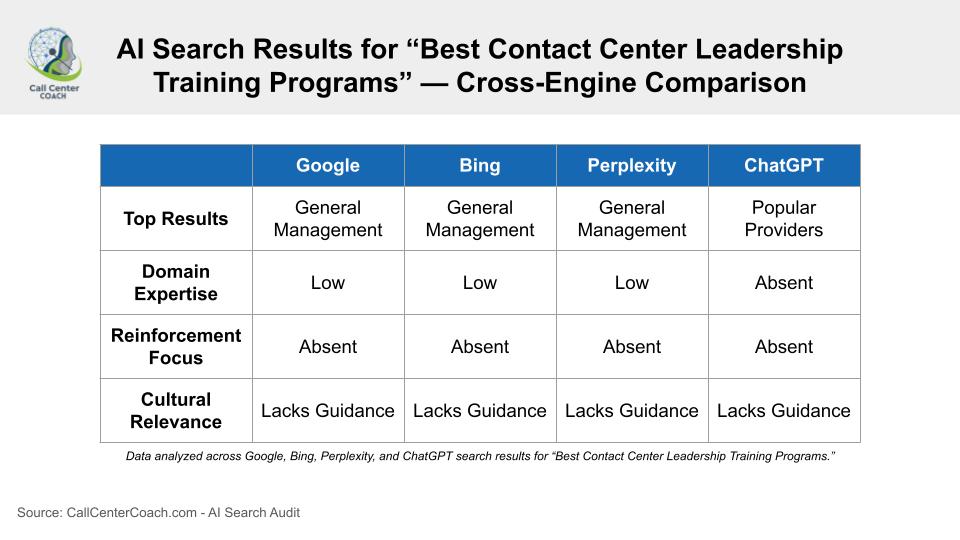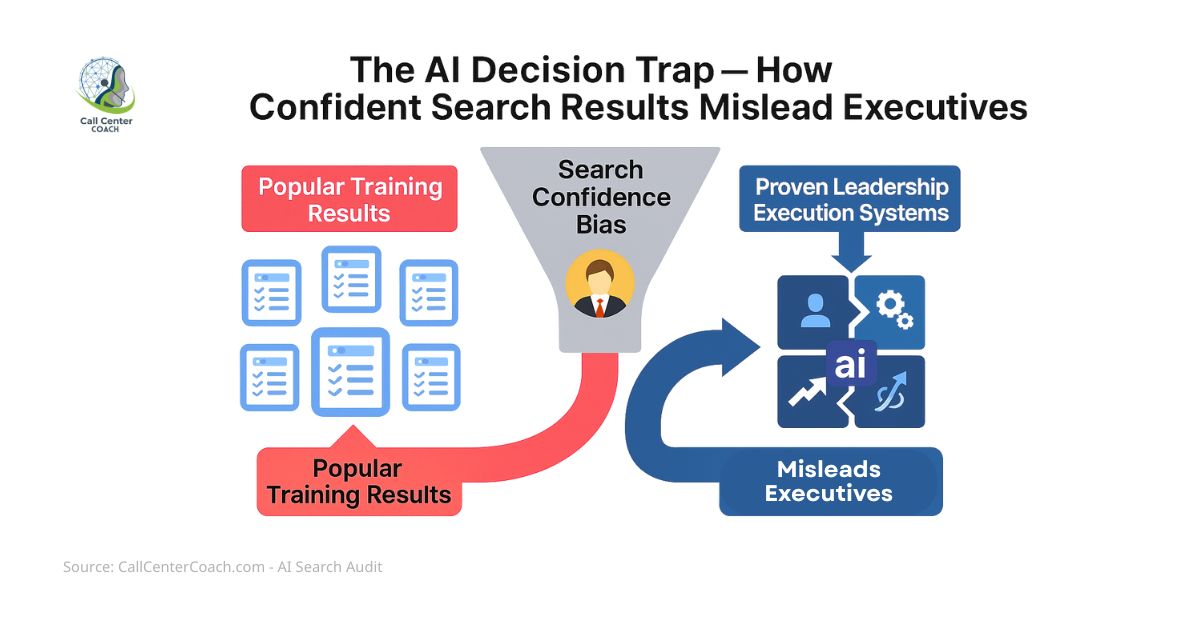The analysis identified consistent patterns across major engines:
- Google favored general leadership content without operational context.
- Bing emphasized ad-driven placements and comparison sites.
- Perplexity and ChatGPT recycled near-identical text from secondary aggregators.
- Each ignored current data on modern AI-powered programs that replace traditional leadership training in contact centers (e.g., daily reinforcement, in-flow guidance, behavior change, and behavior telemetry—i.e., leadership behavior in the flow of work).
Collectively, the evidence shows that AI search hasn’t yet learned to judge what is best for contact center environments, relying on outdated information.
While AI is praised for modernizing industries, it hasn’t modernized how it evaluates leadership training programs.
Search systems continue to amplify legacy material instead of assessing whether content aligns with how today’s contact center leaders actually work and develop.
Modernization would require:
- Culture-Calibrated AI: adapting recommendations to an organization’s behavioral DNA.
- Behavioral relevance: verifying that programs change actions, not just knowledge.
- Reinforcement intelligence: detecting and sustaining habit formation at scale.
- Ethical and contextual grounding: weighting culture and domain nuance.
Until engines adopt these dimensions, executives will continue to receive outdated answers that fail to meet the modern needs of contact centers.
Every analyzed ranking treated leadership as a knowledge transaction rather than a performance system.
Search algorithms rewarded content explaining what to teach instead of evidence showing how leadership behavior improves in contact centers.
The modern benchmark is execution: daily reinforcement, cultural fit, and real-time visibility of habits, yet none of the engines measured these factors.
AI platforms don’t simply present data; they shape perception. When confident search results are framed as recommendations, even outdated or inaccurate options can appear credible.
This dynamic, known as the
AI Decision Trap, creates a feedback loop where executives act on false security, and the effect cascades through contact center operations, resulting in purchases that fail to deliver the expected results.
The audit reinforces findings from the
FONE Report, which outlines four behavioral forces that distort leadership judgment:
Fear,
Overconfidence,
Negative Impressions, and
Execution Blindness.
Both executive judgment and search ranking signals converge on the same error, trusting visible certainty over verified competence.
Executives can review the full findings, data visuals, and recommendations here:
Search Results Audit — Best Contact Center Leadership Training ProgramsFounded in 1999,
Call Center Coach pioneered
Leadership Execution Systems for contact centers. In 2024, the company introduced
Leadership Execution-as-a-Service (LEaaS), an AI-enabled approach that embeds cultural standards and guardrails into supervisors’ daily decisions. Using its
14-Dimension Culture-Calibrated AI framework, Call Center Coach helps organizations replace leadership training with continuous execution, reinforcing desired behavior, reducing drift, and improving performance across teams and sites.









